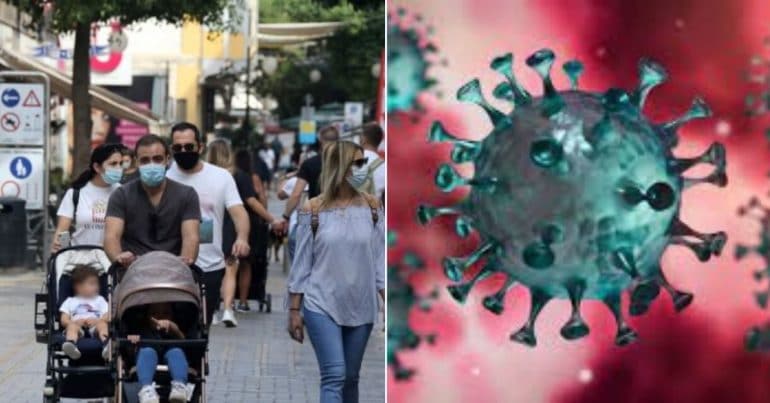New revised plan to update measures against the disease COVID-19 in which more short stay spaces are added for basic necessities, in which no safepass will be required, will take effect from today, Tuesday, March 8th.
Moreover, according to the decisions of the Council of Ministers, from March 8, those who are positive for the virus will be able to be released on the 7th day, provided that they will ensure a negative test (Rapid or PCR). If the result is positive, the procedure can be repeated until negative, or until the 10th day of self-limitation. The decision has retroactive effect.
Also, from March 8, 2022, close contacts of a confirmed positive incident that have not been isolated from the positive in the virus person (eg parents caring for a minor, etc.) instead of remaining in confinement for 10 + 7 days, may be after release of the case on the 7th day to be examined (Rapid or PCR) and if they provide a negative result to be released. The decision has retroactive effect.
Also, from today Tuesday, the capacity in retail businesses, casinos, gyms increases, while the maximum number of people at events including weddings and christenings increases to 500 people, meaning that the area allows 1.5% per person . The ban on student parades is also lifted
As announced by the Ministry of Health, from Tuesday, March 8, there will be no safepass required in supermarkets, grocery stores, butchers, fruit markets, businesses serving the public under 100 sq.m., Take Away services, pharmacies, bakeries and kiosks.
The high-risk areas include entertainment centers and music and dance centers, which serve 150 people and more, as well as restaurants that serve 150 people and more with a dance floor.
Medium-risk areas include nightclubs and music and dance centers serving under 150 and catering facilities serving 150 or more people without a dance floor or less than 150 people with or without a dance floor.
In addition, the same category includes holding events, including weddings and christenings in restaurants, serving less than 150 people (1 person per 1,5 sq.m.), hotels, tourist accommodation, stadiums (70% capacity), venues worship (70% capacity), gyms (1 person per 3 sq.m.), casino (70% capacity), barbershops, hairdressers, beauty and tattoo parlors (1 person per 4 sq.m.), public transport and conferences and trade fairs (70% capacity).
Low-risk areas include theaters, amphitheaters, cinemas, auditoriums (75% capacity), schools, Higher Education Institutions, shopping malls (1 person per 4 sq.m.), gambling and betting companies (1 person). per 4 sq.m.), retail (1 person per 4 sq.m.), Banks (1 person per 4 sq.m.), businesses / organizations serving the public (1 person per 4 sq.m.) .), archeological sites, museums, historical sites and galleries (1 person per 4 sq.m.), playgrounds (1 person per 4 sq.m.), bazaars, festivals and examinations.
In addition, according to the competent Ministry, persons without a history of vaccination or have completed their vaccination program and the period of 7 months has passed or they have a disease certificate and the period of 90 days has passed must have a 24-hour Rapid test in high-risk areas or 48-hour PCR test, while for people 6-17 years old the obligation concerns Rapid or 72-hour PCR test.
In the areas of medium risk they must hold a Rapid test of 48 hours or a PCR test of 72 hours, while for persons 6-17 years the obligation concerns Rapid or PCR test of 72 hours.
In low-risk areas a 72-hour Rapid test or a 72-hour PCR test is required, while for 6-17 year olds the obligation is a Rapid or PCR test of 72 hours and for Primary Education students the obligation is a Rapid or PCR twice a week.
For people who have received a booster / 3rd dose of vaccine, or received two doses for dual-dose vaccines, or one dose for JJ and have not passed the 7-month period or have a disease certificate and have not passed the 90-day period should be in high-risk areas to hold a 48-hour Rapid test or a 72-hour PCR test, while for persons 6-17 years of age the obligation concerns a Rapid or PCR test of 72 hours.
In the areas of medium risk they can be with a demonstration of a valid Vaccination or Disease certificate, while in the low risk areas with a demonstration of a valid Vaccination or Disease certificate.
